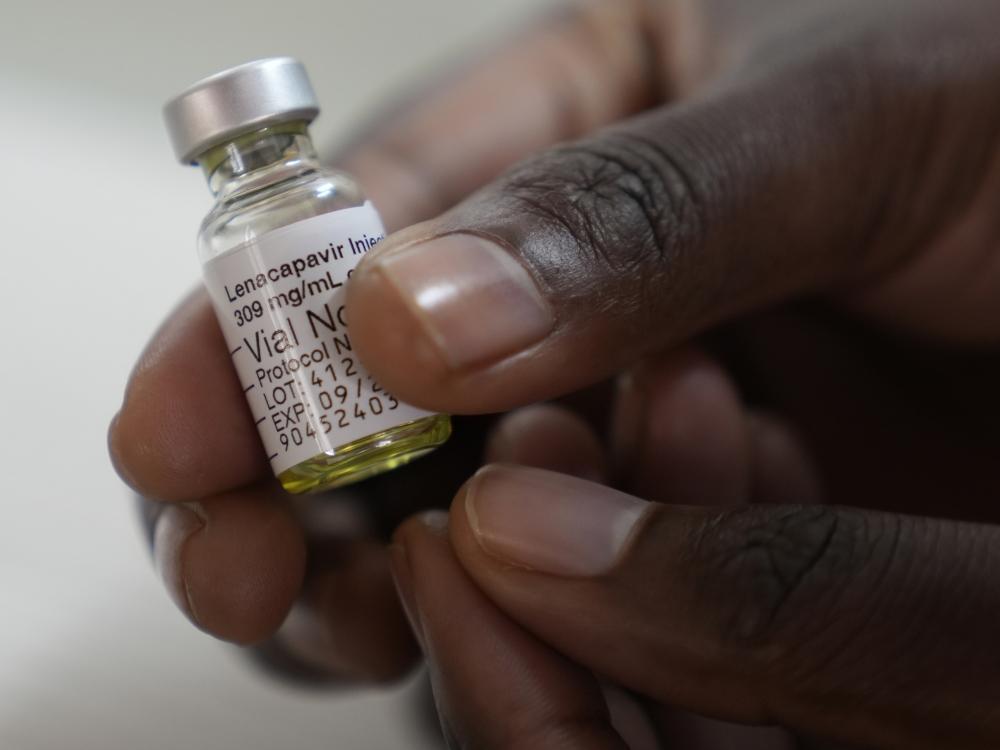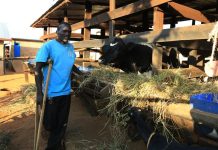Africa-Press – Rwanda. Rwanda is among the countries interested in Lenacapavir, a newly approved, long-acting preventive injection, though its cost is seemingly out of reach for many developing countries.
Manufactured by US-based Gilead Sciences, Lenacapavir is administered via injection once every six months for people at risk of HIV infection. In the United States, it is priced at approximately $28,218 per person per year.
The drug is expected to be introduced in at least nine countries by early 2026, and Rwanda could be among the first to roll it out, according to the government and World Health Organisation (WHO).
Last week, during the International AIDs Society (IAS) Conference in Kigali, Health Minister Dr. Sabin Nsanzimana, confirmed that the country is interested in incorporating the drug into its national HIV treatment strategy.
“Rwanda is working on integrating long-acting injectable treatment into its national HIV care guidelines, and this will be implemented soon,” he said.
How easy is it to get the medicine at a lower price?
Speaking to The New Times, Janvier Kabogo, a Rwandan pharmacist with interest in market access, commercial strategy and outcomes research, currently studying at Johns Hopkins University in the US, acknowledged the difficulty of negotiating lower prices for newly approved drugs, but he insisted that Rwanda has often performed well in making such deals.
“I have high hope that this is a question of when, rather than if,” he said.
Kabogo cited a number of examples of deals that Rwanda has made happen in the past, including the acquisition of Covid-19 vaccines very fast.
He pointed at a number of options for Rwanda to get Lenacapavir, for example, the “Global Fund partnership” under which Gilead Sciences and the Global Fund recently made a deal to supply Lenacapavir at “no profit” to countries supported by the fund, including Rwanda.
Kabogo also hinted at the possibility of direct negotiations between the Ministry of Health and Gilead to plan supply, logistics, and technical support. Alternatively, he said, Rwanda could benefit from joining and partnering with international or regional purchasing groups that buy in bulk to reduce the costs.
Dr. Meg Doherty, Director of the Department of Global HIV, Hepatitis and Sexually Transmitted Infections at the WHO, told reporters in Kigali last week, that at least nine early-adopter countries will access the medicine starting in early 2026.
She added that the countries receiving it in the beginning will get it for free, as she noted that Rwanda is already in talks to become one of them.
Kabogo reckoned that there will be generic competition in the future as the pharmaceutical industry will be working to bring generic versions of the medicine to the market. He noted that Rwanda can lobby for and prepare to use these generics when they become available.
Lenacapavir is the first HIV prevention drug approved for use every six months.
Commenting on the importance of acquiring such medicine in Rwanda, Elvis Benimana, a Kigali-based public health professional with interest in improving health equity for vulnerable populations, noted that Rwanda is a low-income country and some research has already shown that people face challenges in regards to accessing antiretroviral medicines due to barriers like distances.
“Therefore, the long-acting Lenacapavir drug for HIV prevention can be useful,” he noted.
Last month, reacting to the approval of the medicine, UNAIDS Executive Director Winnie Byanyima said; “Lenacapavir could be the tool we need to bring new infections under control – but only if it is priced affordably and made available to everyone who could benefit.”
According to the Rwanda Population-based HIV Impact Assessment (RPHIA), a national household-based study conducted in 2018–19, the HIV prevalence remains at 3 percent among adults aged 15-64, with a high prevalence peak of 7.4 percent among women aged 50-54 and 6.5 percent among men aged 55-59 years.
In addition, the reported prevalence was higher among women (3.7 percent) than males (2.0 percent) in the adult population.
For More News And Analysis About Rwanda Follow Africa-Press






